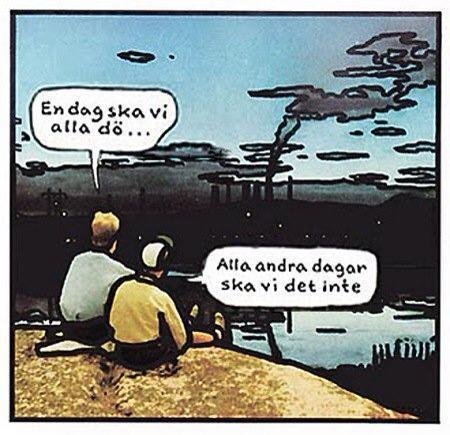"One day we will all die... but all other days we will not." Death is one of the worst things we can imagine. It can mean the end of everything. Of life, consciousness, and one's own existence. And for friends, family, and society, the one who dies is lost. At the same time, death is nothing to us. For where I am, death is not, and where death is, I am not, as Epicurus said.
There is non-existence on both sides of life, both before we began to exist and after we die. Are these connected in any way? And how far should we as a society go to delay death and achieve long lives? We live both a biological and a narrative life. Biological life ends when the criteria for brain death are met. Meanwhile, the narrative afterlife gets a boost in the memorial service. Cioran also asked, with a Buddhist twist: Is it possible that existence is our exile and nothingness our home?
What will modern technology do to life and death in the future? In this session, the panel reflects on what death is and how we as a society should relate to death, today and in a future with technologies that will impact both biological and narrative life.
We are pleased to present a formidable panel. We envision a format of in-depth conversation, starting with each panelist having two minutes to pitch their understanding of what death is to the audience. And we promise the audience an opportunity for Q&A at the end.
In the panel -
Carl Tollef Solberg, doctor, philosopher, and associate professor at the Center for Medical Ethics, winner of the Zapffe Prize in 2022, awarded an ERC grant from the EU to research fundamental questions about death and population ethics
Rupert Sheldrake, biologist, philosopher, and author of more than a hundred scholarly articles and nine books, including The Science Delusion, former Director of Studies in Cell Biology and research fellow at the Royal Society, from 2005 to 2010 he was the director of the Perrott-Warrick project, for studies of unexplained abilities in animals and humans, funded by Trinity College, Cambridge
Audun Myskja, doctor and author, runs the Myskja Center for Life Support which offers both conventional and alternative medicine, has won several awards, including the Norwegian Medical Association's Quality Award, latest book is "Naturally Pain-Free"
Moderator: Kristine Hovda, forfatter og artist

